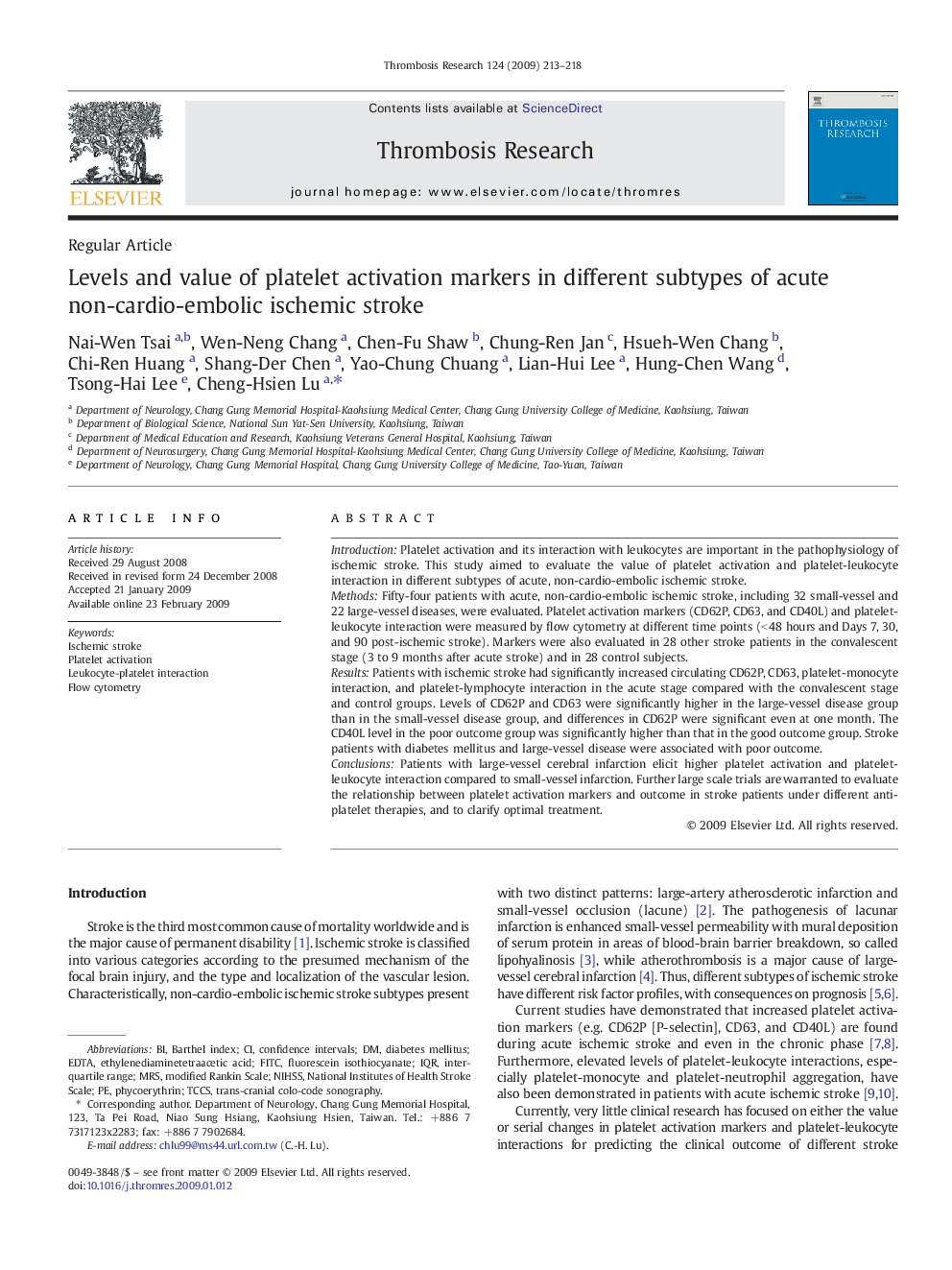| Article ID | Journal | Published Year | Pages | File Type |
|---|---|---|---|---|
| 3029420 | Thrombosis Research | 2009 | 6 Pages |
IntroductionPlatelet activation and its interaction with leukocytes are important in the pathophysiology of ischemic stroke. This study aimed to evaluate the value of platelet activation and platelet-leukocyte interaction in different subtypes of acute, non-cardio-embolic ischemic stroke.MethodsFifty-four patients with acute, non-cardio-embolic ischemic stroke, including 32 small-vessel and 22 large-vessel diseases, were evaluated. Platelet activation markers (CD62P, CD63, and CD40L) and platelet-leukocyte interaction were measured by flow cytometry at different time points (< 48 hours and Days 7, 30, and 90 post-ischemic stroke). Markers were also evaluated in 28 other stroke patients in the convalescent stage (3 to 9 months after acute stroke) and in 28 control subjects.ResultsPatients with ischemic stroke had significantly increased circulating CD62P, CD63, platelet-monocyte interaction, and platelet-lymphocyte interaction in the acute stage compared with the convalescent stage and control groups. Levels of CD62P and CD63 were significantly higher in the large-vessel disease group than in the small-vessel disease group, and differences in CD62P were significant even at one month. The CD40L level in the poor outcome group was significantly higher than that in the good outcome group. Stroke patients with diabetes mellitus and large-vessel disease were associated with poor outcome.ConclusionsPatients with large-vessel cerebral infarction elicit higher platelet activation and platelet-leukocyte interaction compared to small-vessel infarction. Further large scale trials are warranted to evaluate the relationship between platelet activation markers and outcome in stroke patients under different anti-platelet therapies, and to clarify optimal treatment.
